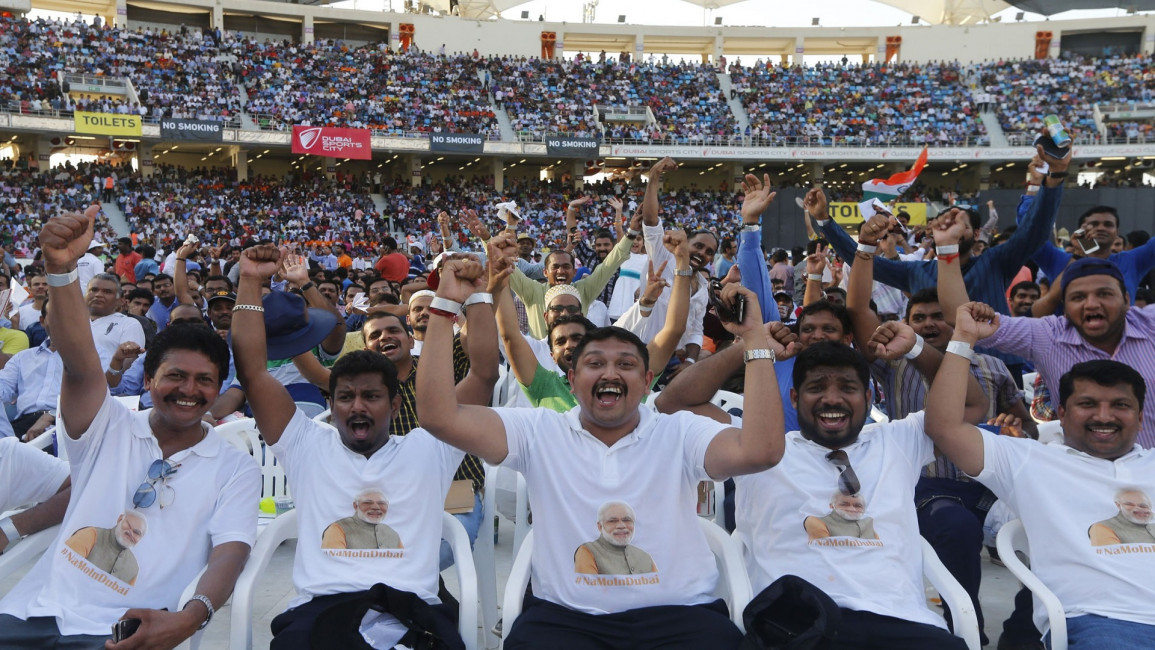
Praying on the mind: Arabs discuss UAE Hindu temple
Praying on the mind: Arabs discuss UAE Hindu temple
Abu Dhabi's decision to allow construction of temple is welcomed by many, especially Hindu expats, but some Arabs on social media are not as thrilled.
2 min read
The UAE has a large expat Hindu population [Getty]
Abu Dhabi's decision to allot a plot for a Hindu temple has sparked controversy among Arab social media users, particularly in the Gulf.
Opinions were split between those who see the temple as a natural right for one of the largest expat communities in the UAE, and others who see it as a violation of Islam.
The news was first broken by India's Prime Minister Narendra Modi, who called the move a "great step" on Twitter.
Modi was on a two-day visit to the UAE that started on Sunday, aimed at boosting relations between the two countries that enjoy a centuries-old relationship.
An Arabic Twitter hashtag on the temple has since become one of the most trending in the UAE and several Arab countries, and was used in tens of thousands of messages.
Those in opposition described the decision as a "religious setback" in the Arabian Peninsula. Ultraconservative Muslims, citing certain religious texts, believe the peninsula should remain free of non-monotheistic houses of worship.
Some conservative clerics weighed in on social, recalling previous religious edicts allegedly prohibiting the construction of churches in the peninsula.
Supporters of the move stressed that there should be no exceptions to the freedom of worship and belief, citing the mosques in the West and India itself. Many welcomed the move, saying tolerance and coexistence reflected true Islamic values.
Meanwhile, many UAE Twitter users criticised the high number of Saudis who expressed their objection to the temple, saying it was interfering in another country's affairs.
Hindu temples already exist in Dubai and a number of Gulf countries, including in Oman and Bahrain.
Twitter Post
|
Twitter Post
|
Twitter Post
|
Twitter Post
|



